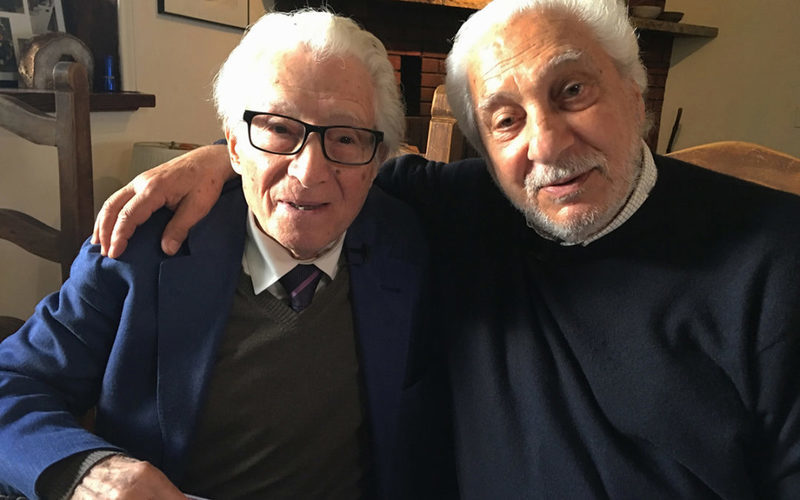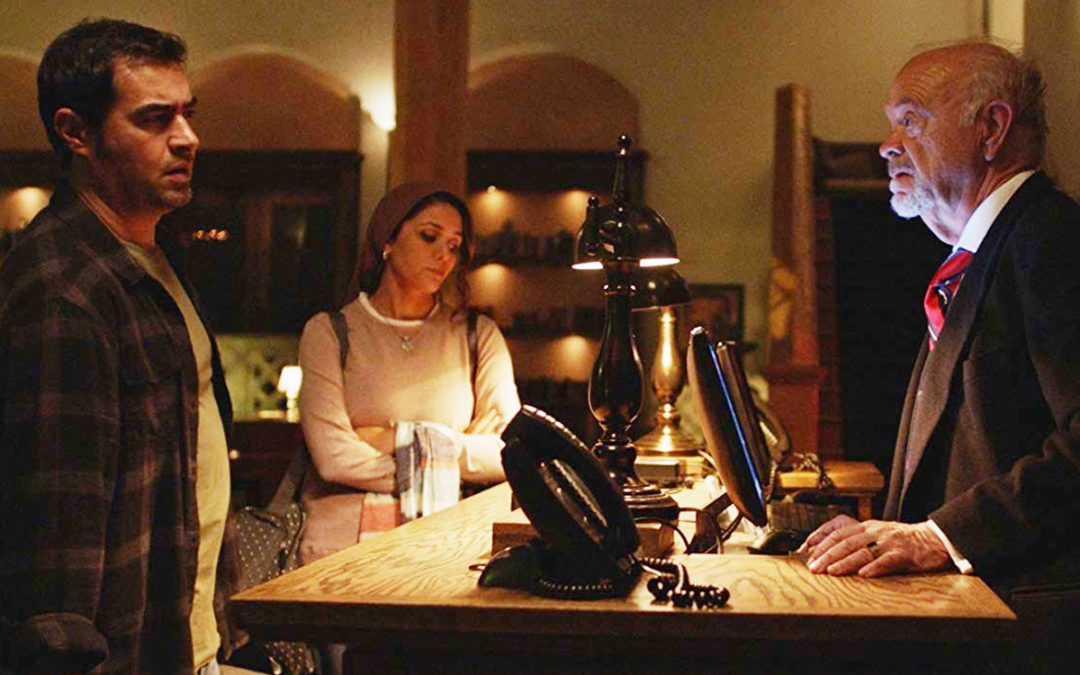The 35th Santa Barbara International Film Festival (SBIFF), which kicked off January 15th and runs through Saturday, January 25th, recently held the world premiere of Iranian-American director Kourosh Ahari’s debut feature, “The Night,” a horror film that is downright eerie in its timeliness. In light of the reckless actions made by world leaders earlier this month that have once again placed the blood of innocent lives on our hands, it seems only fitting that Ahari’s tale of an Iranian couple struggling to have a peaceful night’s rest in modern-day America would be so deeply indebted to “The Shining.” Kubrick’s 1980 landmark masterfully illustrated the cost of denial, particularly in regards to American history, and how we are doomed to repeat the sins of the past if we fail to retrace our ancestors’ footsteps. I have no doubt that Hotel Normandie, the establishment where an inebriated Babak (Shahab Hosseini) and his wife (Niousha Jafarian) choose to spend the night with their baby daughter, is spiritually linked to the Overlook Hotel as well as The Great Northern Hotel in Twin Peaks, two other cavernous inns haunted by the residue of memories we’d rather forget. Though I could more or less guess every twist prior to them materializing onscreen, Ahari’s picture still managed to unnerve me with its remarkable evocation of Kubrickian horror, an aesthetic that has eluded countless imitators, including last year’s “Doctor Sleep.”
My favorite shot in the whole film rests on the face of Hosseini, Asghar Farhadi’s invaluable frequent collaborator, for over three minutes as he tries desperately to fall asleep, despite having just endured a frightening series of supposed hallucinations. His wife reenters the room out of frame and starts inexplicably filing her nails. The longer the camera holds on Babak in close-up, the more our mind buzzes with possibilities as to what nightmarish sights are being shielded from our view. Composer Nima Fakhrara channels the galvanizing atonal shrieks of Krzysztof Penderecki’s “Threnody to the Victims of Hiroshima,” a crucial selection on the soundtracks of “The Shining” and “Twin Peaks,” while Ahari cleverly christens “I Wanna Be Loved by You” as his film’s equivalent of “Midnight, the Stars and You.” The apparitions that terrorize the couple are all the scarier in their ordinariness, though George Maguire earns some nervous laughs as a hotel receptionist whose words of wisdom are no more comforting than those recited by Mrs. Dudley in “The Haunting.” As hinted by a disquieting painting that catches Babak’s eye in the lobby, not to mention his room number 404, the ghosts inhabiting Hotel Normandie conspire to take the form of our own collective doppelgänger, staring at us when we’d prefer to look away, thus bringing to light the truths we had hoped would’ve faded into the depths of our subconscious.

Among the most formative experiences of my youth was being introduced in elementary school to the mind-blowing photography of Lewis Hine, who chronicled the deplorable conditions suffered by young people in a successful effort to improve child labor laws in the U.S. Photographer Santi Visalli, one of the two titular subjects in Andrew Davis’ “Mentors—Toni & Santi,” another notable gem having its world premiere at SBIFF 2020, cites Hine as one of the idols who motivated him to ensure that his own work would have a historical impact, preserving its imagery for future generations, much like the wet cement that enabled Michelangelo’s paint to run deep into the Sistine Chapel. Sporting an integrity that would’ve made Louisa May Alcott proud, Visalli never relinquished the rights to his photos, even though he would’ve earned more money had he sold them to the respective publications that originally ran them, opting instead to make his visual documentation of world history accessible for students to study in universities. His belief that apprentices should begin working in the garden before the studio, in order to build an appreciation for the roots of what we so often take for granted, was taught to Visalli by his own mentor, renowned war photographer Tony Vaccaro. Deciding that he would take pictures in the same way that his abusive uncle hunted—shooting without aiming—Vaccaro sought to utilize a camera small enough to render his presence invisible, providing him with the ability to immortalize unfiltered moments stripped of all artifice.
Clocking in at 51 minutes, this affectionate profile is destined to be seen primarily on television, yet audiences lucky enough to catch it at festivals will have a rare opportunity to view many of the finest pictures taken over the past century on the big screen. What characterizes Vaccaro and Visalli’s work, above all, is its overarching humanity, which can be observed not only in how they lens their subjects but how they approach them beforehand. When tasked with photographing Frank Lloyd Wright, Vaccaro refused to pose him and instead offered him a haircut. Aware of David Rockefeller’s guarded demeanor prior to a photography session, Visalli loosened up the formidable banker by asking him about some of the cherished items in his office.
Visalli’s philosophy that you must be as skilled a psychologist as you are a photographer in order to take a great picture also extends to the filmmaking of auteurs like Davis, whose love of spontaneity inspired him to stage an unscripted chase sequence during Chicago’s massive St. Patrick’s Day parade in his classic 1993 thriller, “The Fugitive.” Rather than allow “Mentors” to devolve solely into biographical exposition, Davis includes various endearing vignettes of his subjects’ behavior, such as when ordering their favorite Italian dish at a restaurant or engaging in witty banter (Visalli quips that having Vaccaro as his wedding photographer was like hiring Picasso to paint the bathroom). Yet it is during the film’s opening sequence where Davis most poignantly captures the 60-year bond between these friends and collaborators—separated in age only by a decade—as they reunite for the first time in what feels to them like an eternity. Davis holds on this moment long enough for us to see the tears forming in their eyes, as the warmth shared between these men emanates from the screen and enters our souls.












